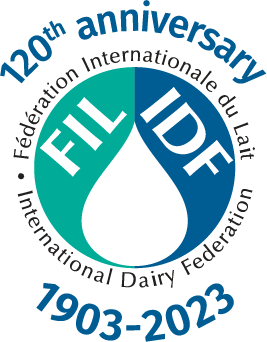No, on the contrary. When ageing, your body has more difficulty synthesizing proteins and has more difficulty slowing down their degradation. In addition, older people suffer more from acute and chronic inflammatory diseases that require a higher rate of protein synthesis. In older people, a protein deficiency could have multiple serious consequences: loss of weight, reduction of muscle mass, tiredness, less resistance to infections, bone weakening etc. Their diet therefore has to supply enough protein for the increased requirements. Milk proteins are very well adapted to the needs of the elderly: a cup of milk supplies almost 10 g of protein, which is approximately 15% of the daily recommended value*.
* Recommendations are 1g of proteins/kg body weight/day. An elderly person weighing 60kg has to consume approximately 60g proteins a day (for example: 1 cup of milk, 100g meat or fish, 1 egg, 1 portion of cheese, 1 yoghurt, pulses and bread).






